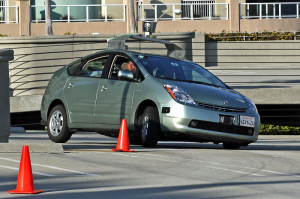 A US-based startup, NuTonomy, might be the first company with a fleet of fully autonomous taxis on the roads, if the authorities of Singapore approve the company’s pilot program to be launched in a few months.
A US-based startup, NuTonomy, might be the first company with a fleet of fully autonomous taxis on the roads, if the authorities of Singapore approve the company’s pilot program to be launched in a few months.
NuTonomy is an autonomous car software designer that started at the Massachusetts Institute of Technology – MIT. The company has been working for three years to create a fully autonomous vehicle. A few days ago, NuTonomy’s self-driving taxi passed successfully its first driving test in Singapore. The test consisted of navigating the vehicle autonomously through a custom obstacle course.
The company raised $3.6 million in seed funding from investors including Samsung and Signal Ventures three months ago. The company is currently in the process of seeking government approval to test its fully autonomous technology on roads in a business district. The pilot program, called OneNorth, would be based in downtown Singapore. The 25-member NuTonomy team is planning to eventually add thousands of taxis and offer the service at a cost comparable with public transport as there is no need to pay or insure drivers.
Singapore is particularly good city to test the driverless technology considering its traffic congestion and investment in autonomous vehicles, according to Emilio Frazzoli, nuTonomy co-founder and chief technology officer.
The project will use electric cars which produce lower levels of greenhouse gas emissions than conventional vehicles. The NuTonomy taxis will use LIDAR data for better localisation and ‘advanced fleet management’ to reduce the number of vehicles needed, as well as a software that can choose optimal paths for travelling to reduce traffic congestion or tell taxis when low-priority rules of the road could be broken.
You will be able to order a self-driving taxi by using your smartphone. Just fill in the destination, sit back and let the car do the rest of the work.
NuTonomy has also developed self-driving software , including an autonomous parking feature, for automakers such as Jaguar and Land Rover. This makes it one of the big players in the global self-driving market. However, some analysts suggest we won’t see driverless cars adopted by regulators until 2017, and even then they will need some sort of human control to ensure the users safety.